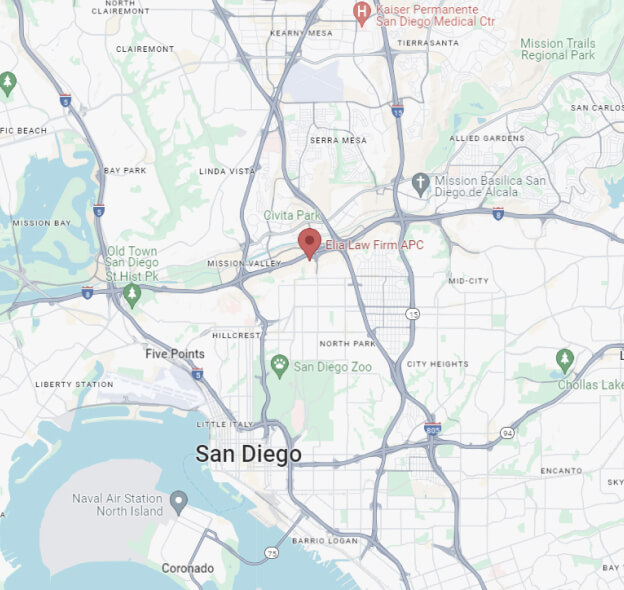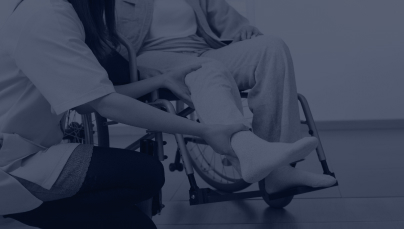Drug Therapy for CRPS
There are no known cures for Chronic Regional Pain Syndrome (CRPS), however there are treatments available to alleviate and manage the pain. One common treatment prescribed by pain specialists is known as drug therapy. Again, drug therapy is not a cure for CRPS; it will only relieve people of their pain and help them regain some of their normal daily functions.
Information about the following drug therapies for CRPS has been adapted from American RSDHope – which is an CRPS awareness and advocacy group. The Elia Law Firm, APC do not endorse any one particular drug or CRPS therapy treatment. The following is for informational use only.
ANALGESICS (Medicines that relieve pain)
OPIATE AGONISTS: An opiate agonist gives the user the same feeling as would be experienced by an endorphin, which is a natural compound. The receptors in the brain that feel effects from opiates receive the opiate agonist and feel an opioid effect, even though one isn’t really happening.
Commonly used opiate agonists are:
- MS Contin
- Morphine
- Oxycontin
- Opana
- Hydrocodone
- Fentanyl patch
OPIATE ANTAGONISTS – Opiate Antagonists block and reverse the effects of opiod agonists by adhering to opiod receptors. An example of an opiate antagonist is Naltrexone.
NARCOTICS – Narcotics are used to mask pain by blocking pain receptors from sending pain messages to the brain. These are broken down into three types:
CODEINE-BASED MEDICATIONS
OXYCODONE BRANCH: Oxycontin CR and IR,Percocet, Percodan
HYDROCODONE BRANCH: MS Contin, Vicodin, Lortab, Lorcet, Methadone, and Kadian
Most doctors will prescribe the ER (extended release) or CR (controlled release) versions of these narcotics for a more evenly distributed release of medicine during the day, and to help the patient sleep better through the night.
ANTIDEPRESSANTS –Originally only used to treat depression, studies have shown that these medications, both the newer antidepressants and the older tricyclic versions, can alleviate pain in certain situations. Furthermore, they have the added benefits of not only helping some patients sleep better, but also reducing some of the headaches associated with CRPS; although some have a tendency to cause weight gain and drowsiness. Typical examples:
Commonly used opiate agonists are:
- MS Contin
- Morphine
- Oxycontin
- Opana
- Hydrocodone
- Fentanyl patch
OPIATE ANTAGONISTS – Opiate Antagonists block and reverse the effects of opiod agonists by adhering to opiod receptors. An example of an opiate antagonist is Naltrexone.
NARCOTICS – Narcotics are used to mask pain by blocking pain receptors from sending pain messages to the brain. These are broken down into three types:
- CODEINE-BASED MEDICATIONS
- OXYCODONE BRANCH: Oxycontin CR and IR,Percocet, Percodan
- HYDROCODONE BRANCH: MS Contin, Vicodin, Lortab, Lorcet, Methadone, and Kadian
Most doctors will prescribe the ER (extended release) or CR (controlled release) versions of these narcotics for a more evenly distributed release of medicine during the day, and to help the patient sleep better through the night.
ANTIDEPRESSANTS –Originally only used to treat depression, studies have shown that these medications, both the newer antidepressants and the older tricyclic versions, can alleviate pain in certain situations. Furthermore, they have the added benefits of not only helping some patients sleep better, but also reducing some of the headaches associated with CRPS; although some have a tendency to cause weight gain and drowsiness. Typical examples:
- Paxil
- Zoloft
- Elavil
- Pamelor
- Trazadone
ANTI-CONVULSANTS – These medications are used to try and decrease the random neurons firing, thereby decreasing the burning pain and sensitivity associated with CRPS. This can sometimes also decrease the pain. Examples:
- Tegretol
- Topamax
- Lyrica
- Neurontin.
ANTISPASMODICS / MUSCLE RELAXANTS – Muscle spasms are very common with CRPS, typically rolling in nature. The medications used to treat this can include:
- Baclofen
- Clonazepam
- Flexeril
- Soma
- Zanalfex
N-SAIDS – Used to treat swelling and inflammation. These can include:
- Celebrex
- Feldene
Always speak to your doctor about your CRPS symptoms. Never stop, increase, or decrease your medications without talking to your doctor first. Always discuss any changes in mood or symptoms with your physician.
CRPS Therapies and Treatments
Suffering from CRPS?
If you suffer from CRPS you may be entitled to compensation. Seek out a CRPS attorney for help. If you are in the San Diego area, give us a call.










